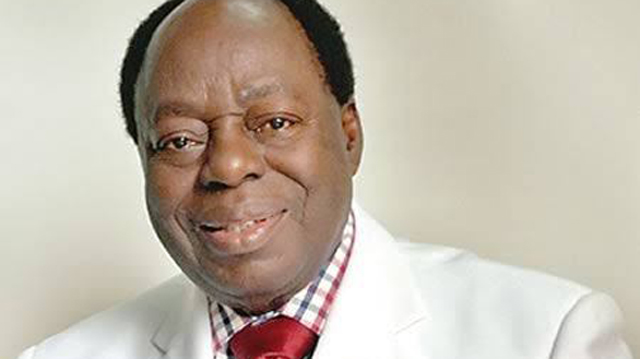Ado-Ekiti, Nigeria (Dec. 6, 2024) – Afe Babalola, founder of Afe Babalola University Ado-Ekiti (ABUAD), expressed his dismay on Friday over what he described as defamatory remarks made against him by rights activist and lawyer, Dele Farotimi, in his recent book. Babalola said the accusations have severely damaged the reputation he has spent decades building, a harm he argued cannot be undone by financial compensation.
At a press conference held at the Afe Babalola Bar Centre in Ado-Ekiti, Babalola, through his legal representative Owoseni Ajayi, addressed the ongoing legal conflict involving Farotimi and the Nigerian Police, stemming from Farotimi’s book titled Nigeria and its Criminal Justice System. Ajayi clarified that, while the matter is before the courts, public misrepresentations on social media necessitated a response to correct false impressions.
“There is a dictum in law: ‘Audi Altarem Partem,’ meaning the need to hear the other side,” Ajayi said.
“The Yoruba proverb ‘A gbo ejo enikan da, agba osika ni’ is true—anyone who judges based on just one side is most wicked.”
Ajayi further explained that Babalola had previously been lauded for his principled stance in the public sphere, but in light of Farotimi’s claims, Babalola and his family have faced fierce online attacks.
“Today, the same Afe Babalola is being attacked, thanks to the one-sided report by Mr. Farotimi,” Ajayi stated.
Babalola’s petition to the Ekiti State police commissioner called for Farotimi to provide evidence supporting the assertions in his book. If Farotimi fails to prove the truthfulness of the allegations, Babalola seeks prosecution for criminal defamation and the confiscation of all defamatory publications.
“I wrote to request that Farotimi must show proof of the truthfulness of his publication, failing which he should be prosecuted for criminal defamation,” Babalola explained.
“Should justice only be available to Mr. Farotimi because I am a global icon?”
He emphasized that while free speech is protected, it should not be used to harm another’s reputation without basis.
“Until then, the law allows free speech, but not one that is calculated to injure the good reputation of another,” Babalola added.
Babalola also expressed concern over misleading statements made by the President of the Nigerian Bar Association (NBA) on the matter, pointing to a legal precedent which he believes supports the case that defamation is both a tort and a criminal offense.
 Donate
Donate



